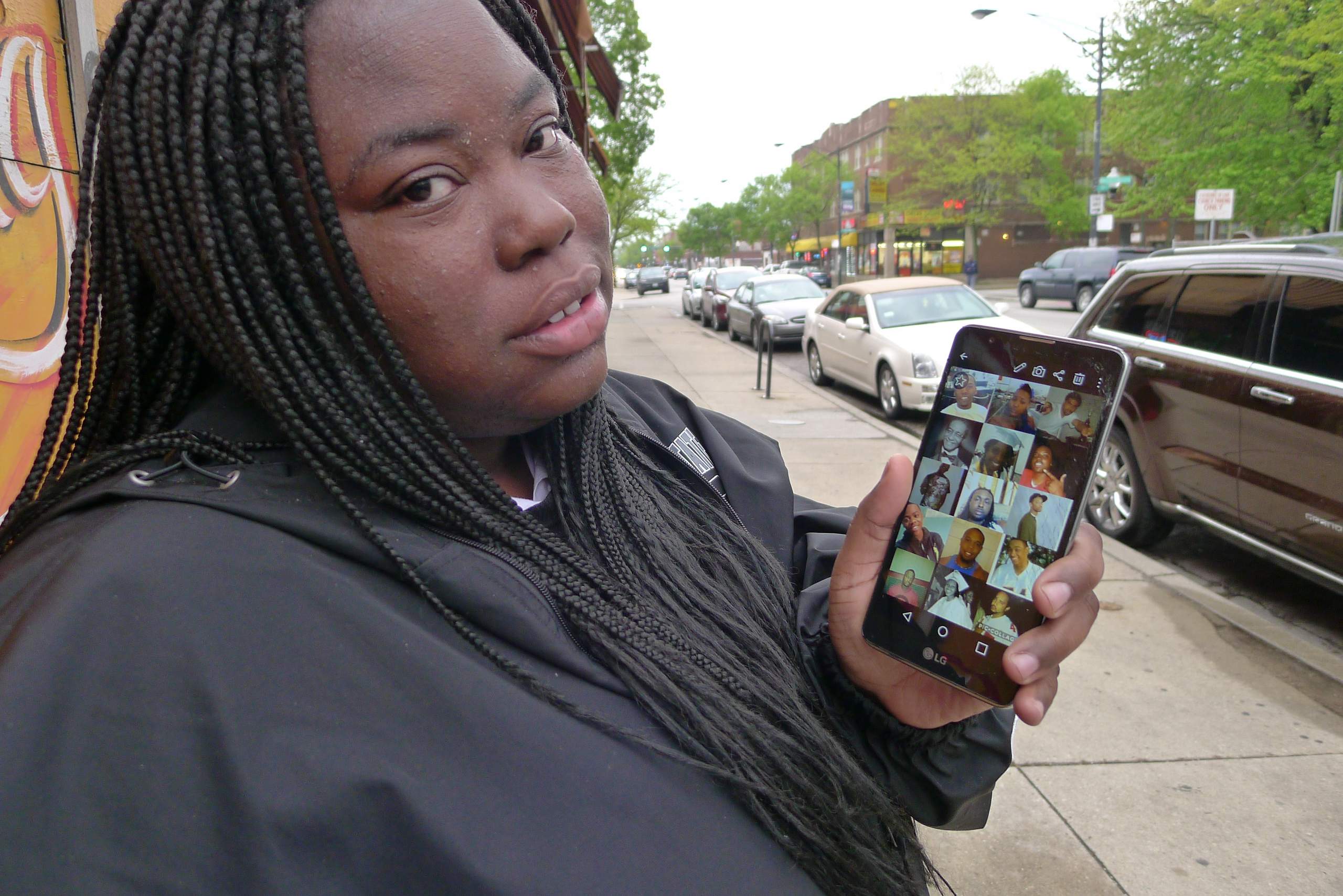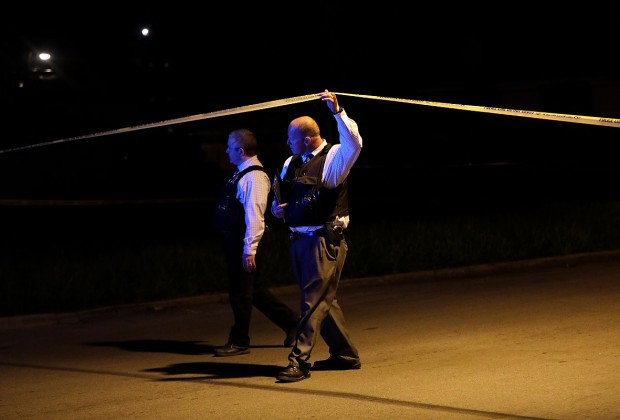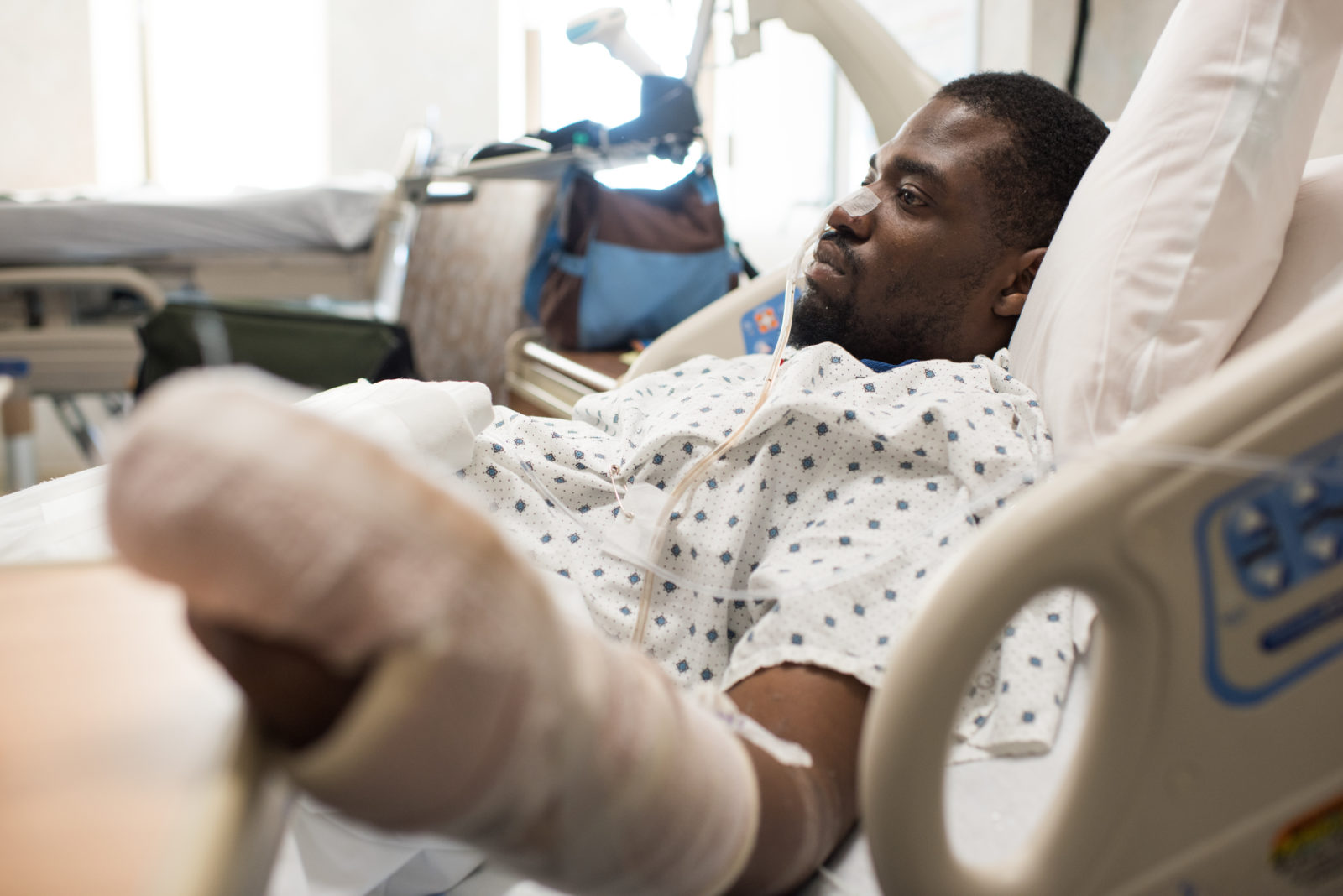Scores of American cities have implemented the National Network's strategies with powerful impact over nearly two decades. Substantial research and field experience has proven that these interventions are associated with large reductions in violence and other serious crime.
The National Network welcome interviews and other media requests related to the work we advance and the cities we support.
The National Network's approach has attracted significant media attention over twenty years. This page features the most recent coverage of our work and a searchable archive of media about the National Network's projects around the nation and abroad.
The National Network convenes regular conferences, working sessions and webinars to discuss and promote developments in its core areas of operation, showcase innovations, and set research and development priorities.
May 2017 | The San Bernardino County Sun
The San Bernardino (CA) City Council has approved a plan to implement a violence reduction strategy similar to NNSC's Group Violence Intervention. Leaders from Oakland CeaseFire, partners of NNSC, will consult San Bernardino on the implementation.
May 2017 | NPR
"Decades of data show that the journey to racial disparity begins when black men are boys. Black boys are policed like no other demographic. They are policed on the street, in the mall, in school, in their homes, and on social media. Police stop black boys on the vaguest of descriptions – 'black boys running,' 'two black males in jeans, one in a gray hoodie,' 'black male in athletic gear.' Young black males are treated as if they are 'out of place' not only when they are in white, middle-class neighborhoods, but also when they are hanging out in public spaces or sitting on their own front porches."
Tags: National Initiative for Building Community Trust and Justice
May 2017 | WFAA
Fort Worth Police Chief Joel Fitzgerald, on his department's efforts to improve police-community relations: "Right now, we’re doing our very best to make sure that the community understands we’re there for them, and we’re going to be dedicated to making sure the community understands we are a part of the community."
Tags: Fort Worth National Initiative for Building Community Trust and Justice
May 2017 | The Pitt News
"Pittsburgh’s newest strategy is a major recognition of what recent research seems to confirm — that violence behaves like infectious disease and is better treated when approached like an epidemic. This methodology can trace its roots to the work of David Kennedy, a criminologist at the John Jay College of Criminal Justice who laid the groundwork for almost every successful program to reduce violent crime today."
Tags: Pittsburgh National Initiative for Building Community Trust and Justice
May 2017 | WBEZ

"Historically, African Americans have been the victims of a disproportionate amount of the city’s gun violence. And that trend is getting worse. Shootings in Chicago have become more concentrated in black communities, even as the city’s African-American population declines."
May 2017 | Hartford Courant
At their quarterly "call-in" meeting, Project Longevity-Hartford urged a group of young men, several of whom had been victims of gun violence, to remove themselves from the dangerous cycle of retaliation and not "let pain consume you and your life."
Tags: Hartford
May 2017 | Data-Smart City Solutions
Ron Davis, former Director of the Office of Community Oriented Policing Services at the Department of Justice, discusses the importance of transparency when cities are dealing with high-profile police incidents.
Tags: National Initiative for Building Community Trust and Justice
May 2017 | Chicago Magazine

Yale sociologist (and NNSC partner) Andrew Papachristos has conducted extensive research about the social-network theory of gun violence. In Papachristos' latest paper, he and his co-authors consider the timing of homicide victimization within these social networks. In other words, if one person is killed, how much time passes between his death and the next homicide among people he "infected"?
May 2017 | Los Angeles Times
The Los Angeles Police Commission voted in favor of a set of changes that will deepen procedural justice practices in the LAPD. These changes relate to "how the department guards against bias, shares data about policing with the public, and disciplines and deploys officers."
Tags: Los Angeles National Initiative for Building Community Trust and Justice
May 2017 | The Trace

"Five Ohio hospitals are partnering with local service providers to offer trauma screening and crisis intervention for victims of violent crime. As patients heal and return to their community, social workers and trauma specialists will link them with a variety of services, including short-term safe housing, legal advocacy, referrals to substance abuse treatment, mental health counseling, and essentials like food and clothing. It’s an approach guided by the mantra that 'hurt people hurt people' — the idea that both physical violent injury and psychological trauma can fuel future violence."
Tags: Support and Outreach
April 2017 | The New York Times
"Since the presidential election, there has been a sharp downturn in reports of sexual assault and domestic violence among Latinos throughout the country, and many experts attribute the decline to fears of deportation. Law enforcement officials in several large cities, including Los Angeles, Houston and Denver, say the most dangerous fallout of changes in policy and of harsh statements on immigration is that fewer immigrants are willing to go to the police."

April 2017 | O Magazine
"There is good work being done to reform policing—from recruiting officers who better reflect the communities they police to training them in implicit bias, de-escalation, and transparency. But nothing can undo history. If black communities are to trust the police, and if we are to increase public safety, we must purposefully break from the past. Many in law enforcement agree."
Tags: National Initiative for Building Community Trust and Justice Reconciliation
April 2017 | The Stanford Daily
Stockton Police Chief Eric Jones participated in a Stanford Institute for Economic Policy Research (SIEPR) panel to discuss local communities’ falling trust in police enforcement.
Tags: Stockton National Initiative for Building Community Trust and Justice Reconciliation
April 2017 | Star Tribune
"The Minneapolis Police Department is rethinking its use-of-force policies, while stepping up its efforts to recruit female officers. Officers are now being trained in alternative ways to control violent or uncooperative suspects before resorting to physical means."
Tags: Minneapolis National Initiative for Building Community Trust and Justice Reconciliation
April 2017 | New Haven Register
Project Longevity organized a discussion panel to educate the public about its work in the city--and state--and start a conversation about how to foster police-community reconciliation in New Haven.
April 2017 | The Huffington Post

"We are inundated with news about shootings. Fourteen dead in San Bernardino, six in Michigan, 11 over one weekend in Chicago. We get names, places, anguished Facebook posts, wonky articles full of statistics on crime rates and risk, Twitter arguments about the Second Amendment—everything except the blood, the pictures of bodies torn by bullets. That part is concealed, sanitized. More than 30,000 people die of gunshot wounds each year in America, around 75,000 more are injured, and we have no visceral sense of what physically happens inside a person when he’s shot."
Tags: Philadelphia
April 2017 | Pittsburgh Tribune-Review
Pittsburgh Police Chief Scott Schubert: "[With Community policing], you get the familiarity with the officer and you build that relationship, you build that trust. It's going to help in the end by helping partner the officers with the community and hopefully reduce crime, reduce disorder and bring us together.”
Tags: Pittsburgh National Initiative for Building Community Trust and Justice Reconciliation
April 2017 | The Huffington Post
On April 10, a murder-suicide at a San Bernadino, California elementary school left three dead, inlcuding the shooter, his estranged wife, and an 8-year-old boy. While much of the news coverage framed the event as yet another school shooting, it was in fact something that occurs several times a day in the U.S.: a case of fatal intimate partner violence.
April 2017 | The Trace
Tammatha Woodhouse, principal of Excel Academy in Baltimore: "I gave teachers an article by [Yale professor Andrew Papachristos]. It’s about treating gun violence as an epidemic, the way we do with HIV. I felt that the important takeaway for my kids was the idea that bad behavior of people in your social network – your friends and neighbors and relatives – can place you at high risk if you’re interacting with them on a daily basis. Some of the students could relate to the idea of changing your friends. Like, “If I don’t smoke marijuana, why am I hanging out with folks who smoke it?”
Tags: Social Network Analysis
April 2017 | The Royal Gazette
The loss of family and friends to gang violence has spurred one man to launch an anti-violence magazine promoting peace in Bermuda.
Desmond Crockwell has realised his dream of a quarterly publication giving voice to those harmed by gang activity. It was launched with a non-political event at the Bermuda Public Service Union on Saturday evening.
April 2017 | Criminal Injustice Podcast
Aseante Hylick, formerly of the NNSC, reflects on her experiences facilitating police-community reconciliation in cities around the US.
Tags: BirminghamFort WorthGaryMinneapolisPittsburghStockton National Initiative for Building Community Trust and Justice Reconciliation
April 2017 | NBC News
"Each homicide victim has loved ones, a network of friends or family who are left to pick up the pieces after their death. Some may have witnessed the killing and struggle to reckon with those lasting images, let alone the loss itself. Of all the damage done by gun violence in the communities that suffer it most, it may be the trauma related to the exposure to violence that leaves the most lasting mark."
Tags: Chicago
March 2017 | CityLab
The National Network's Michael Friedrich: "In New York City, at least 240 shootings and 24 murders last year began online...Add to this that New York City prosecutors have indicted over 700 young people using evidence from their social media accounts and you get a comprehensive picture of the harm done. We need solutions that don’t just respond to violence but get ahead of it."
Tags: Custom Notifications
March 2017 | Criminal Injustice Podcast
David Kennedy: "When I asked the first gang member I talked to behind closed doors about the violence in his community, he said to me, 'The violence [happens] because in my neighborhood the law doesn't work--it never has and it never will.'"
Tags: National Initiative for Building Community Trust and Justice Reconciliation
March 2017 | San Bernadino Sun
On March 6, the San Bernadino City Council unanimously approved an agreement with California Partnerships to implement Ceasefire, the violence reduction intiative that has significantly reduced homicides in Oakland and Stockton.
